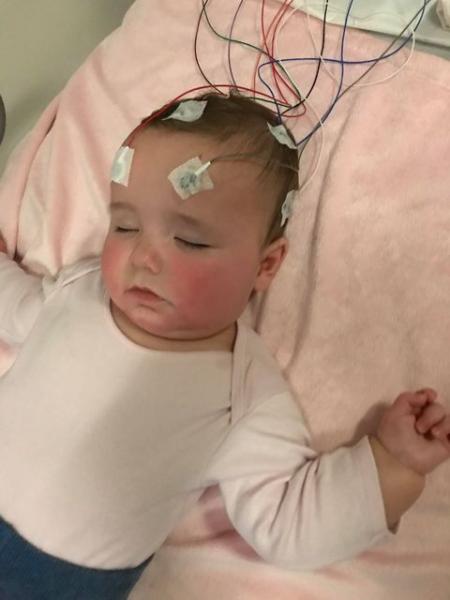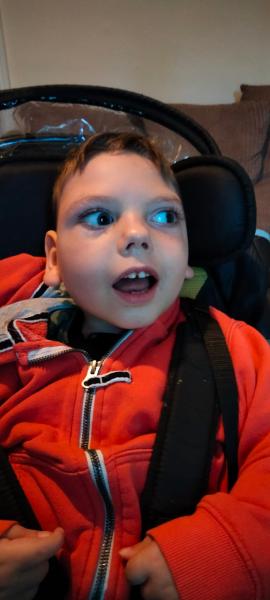What is West Syndrome?
West Syndrome or Infantile spasms is a rare form of epilepsy that occurs in young children, usually under the age of one. In the UK, approximately 400 children are diagnosed with the syndrome every year. The average age for the onset of spasms is around 4 months, but some children may be as young as 1 month old, or may experience them a little later up to 2 years old.
What does an Infantile Spasm look like?
Infantile Spasms may consist of movements such as:
- Jerky movements in clusters
- Short spasms lasting 1 -2 seconds
- A period of relaxation between clusters
- Head dropping forward
- Arms being flung forward
- Legs being drawn up towards the body
- Subtle spasms may just include a nod of the head or movement of the eyes.
The spasms can look similar to common disorders such as colic or reflux, or a baby’s normal ‘startle’ reflex.
How is West Syndrome diagnosed?
If a child is thought to have infantile spasms, they need urgent referral to a paediatrician, and probably discussion with, or review by, a neurologist. If you suspect a child is having infantile spasms, try to video this happening and get them to the closest A&E department.
For a diagnosis, a child's brainwaves need to be assessed with an EEG test (electroencephalogram). The EEG is a test that measures electrical activity in the brain by placing a series of small electrodes on the child’s scalp and connecting them to a computer. It often involves taking a video of the child’s movements at the same time (video-EEG) to correlate any seizure episodes or movements.
Early diagnosis is so important. A child experiencing infantile spasms seizures has a chaotic brainwave pattern, which can lead to loss of skills and brain damage. It is incredibly important to recognise that a child has infantile spasms as soon as possible, because medication can be given that may control the spasms. The longer the spasms continue before they are treated and controlled, the greater the risk that development will be affected.

What causes West Syndrome?
There are many reasons that a child may experience infantile spasms. There are at least 200 known conditions that affect the brain, such as structural problems, genetic diseases and metabolic diseases, and any of these could lead to infantile spasms. Some parents may already know or suspect that their child an underlying condition or concerns with development. After initial investigations, an underlying cause will be found in approx 70% of cases.

Are there treatments available?
Infantile spasms do not generally respond to the types of anti-seizure medication used to treat most other forms of epilepsy. Two types of medication have proved to be most effective either individually or as a combination:
- Hormonal treatment with ACTH or prednisolone
- Treatment with vigabatrin (Sabril)
Other options for the treatment and management include:

What next?
Hopefully the treatments will stop the spasms, and you will consult with your child's doctor as to whether further treatment is needed to prevent the spasms from coming back. Around 60% of children with West Syndrome or Infantile Spasms will develop other types of seizures during their lifetime, depending on the underlying cause of their condition. West Syndrome can often develop into Lennox-Gastaut syndrome with mixed types of seizures as children get older.
It's important to know that if you are going through this with your child, that you are not alone and there is lots of support out there for you. It may help to connect with other parents experiencing a similar situation to you, or talk through your situation with someone.

